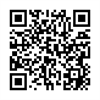Insulin Glulisine, Human Injectable Solution
Brands: Apidra
Uses
For diabetes.
Instructions
This medicine is used by injecting it into the skin. Please ask your doctor, nurse or pharmacist for the correct places on your body where this medicine can be injected.
This insulin should be used 15 minutes before or within 20 minutes after starting a meal.
This insulin does not need to be mixed before using.
This insulin should be clear and colorless. Do not use if it appears discolored, thickened or contains any particles.
Protect medicine from light.
Store unused insulin vials in the refrigerator until ready to use. Do not allow it to freeze.
Remove the insulin from the refrigerator when you are ready to use it.
Do not return the medicine to the refrigerator after you start using it.
Discard the vial 28 days after removing from the refrigerator, even if there is insulin left in the vial.
Throw away any insulin if it was frozen.
Never use any insulin that has expired. Throw it away.
Do not inject into red, swollen, itchy, lumpy, pitted, or thickened skin.
Change the location of the injection each time. Choose a location at least 1 inch from the last injection.
Do not rub or massage the area where the injection was given.
Drug interactions can change how medicines work or increase risk for side effects. Tell your health care providers about all medicines taken. Include prescription and over-the-counter medicines, vitamins, and herbal medicines. Speak with your doctor or pharmacist before starting or stopping any medicine.
Before using insulin, you should be taught by your doctor or a certified diabetes educator. Follow their instructions carefully. If you have not been trained, speak with your doctor before using this medicine.
Be sure to follow your regular meal plan and exercise as discussed with your doctor.
It is very important that you use your medicine every day and that you do not miss any dose of your insulin. Have a discussion with your doctor about what you should do in case you miss an insulin dose.
Tell your doctor if symptoms do not get better or if they get worse.
Keep all appointments for medical exams and tests while on this medicine.
Cautions
Tell your doctor and pharmacist if you ever had an allergic reaction to a medicine.
This medicine can affect the potassium level in your body. Contact your doctor immediately if you experience a slow or irregular heartbeat, muscle weakness or limp feeling, leg cramps, tingling feelings, confusion, unusual thirst, or urinating more than usual.
Monitor your blood sugar as instructed by your doctor.
Adjust the amount of insulin only as recommended by your doctor.
Do not use the medication any more than instructed.
Your ability to stay alert or to react quickly may be impaired by this medicine. Do not drive or operate machinery until you know how this medicine will affect you.
Please check with your doctor before drinking alcohol while on this medicine.
Tell the doctor or pharmacist if you are pregnant, planning to be pregnant, or breastfeeding.
This medicine passes into breast milk. Ask your doctor before breastfeeding.
Always carry an ID card or wear a medical alert bracelet showing that you are diabetic.
Carry glucose tablets or hard candy with you in case you experience low blood sugar from the insulin.
Symptoms of low blood sugar may include nausea, shaking, sweating, cold skin, fast heartbeat, hunger, and irritability.
Ask your pharmacist how to properly throw away used needles or syringes.
Do not share this medicine with anyone who has not been prescribed this medicine.
Side Effects
The following is a list of some common side effects from this medicine. Please speak with your doctor about what you should do if you experience these or other side effects.
- increased appetite
- pain, redness, swelling near injection
- weight gain
Call your doctor or get medical help right away if you notice any of these more serious side effects:
- irregular heart beat
- blurry vision
- confusion
- dizziness
- numbness or tingling in hands and feet
- fast or irregular heart beats
- low blood sugar
- muscle cramps or weakness
- shakiness
- shortness of breath
- sweating
- weakness
A few people may have an allergic reaction to this medicine. Symptoms can include difficulty breathing, skin rash, itching, swelling, or severe dizziness. If you notice any of these symptoms, seek medical help quickly.
Extra
Please speak with your doctor, nurse, or pharmacist if you have any questions about this medicine.
 https://api.meducation.com/V2.0/fdbpem/608
https://api.meducation.com/V2.0/fdbpem/608
IMPORTANT NOTE: This document tells you briefly how to take your medicine, but it does not tell you all there is to know about it. Your doctor or pharmacist may give you other documents about your medicine. Please talk to them if you have any questions. Always follow their advice.
There is a more complete description of this medicine available in English. Scan this code on your smartphone or tablet or use the web address below. You can also ask your pharmacist for a printout. If you have any questions, please ask your pharmacist.
The display and use of this drug information is subject to Terms of Use.
Copyright(c) 2023 First Databank, Inc.